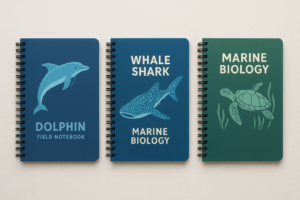
ECOLOGY MADE SIMPLE
CONNECTING YOU WITH A WILD
Dive into the fascinating realms of ecology and wildlife with us. Our blog is dedicated to exploring the intricate connections between living organisms and their environments, highlighting the beauty and importance of the natural world. Whether you’re a passionate ecologist, a wildlife enthusiast, or simply curious about the wonders of nature, you’ll find a wealth of information and inspiration here. Join us on a journey to uncover the secrets of ecosystems, discover the latest research, and learn how we can all play a part in preserving the incredible diversity of life on our planet.

WILDLIFE

ECOLOGY
Explore Wildlife-Themed Gifts and Our Eco-Friendly Wildlife T-Shirts
Celebrate your love for nature with our exclusive collection of wildlife-themed gifts and eco-friendly wildlife t-shirts. Each item is thoughtfully designed to capture the beauty and spirit of the natural world while staying kind to the environment. Whether you’re searching for the perfect gift for a fellow wildlife enthusiast or want to express your own passion for the wild, our sustainable collection has something special for you. Discover how you can carry a piece of nature with you wherever you go with our beautifully crafted, eco-conscious products.

WILDLIFE LOVERS GIFTS

WILDLIFE T-SHIRTS
-
 Unisex Organic Cotton Shark Print T-Shirt$39.00
Unisex Organic Cotton Shark Print T-Shirt$39.00 -
 Sea Stars Print Organic Cotton T-shirt$39.00
Sea Stars Print Organic Cotton T-shirt$39.00 -
 Flamingo T-shirt$39.00
Flamingo T-shirt$39.00 -
 Crocodile Mouth T-Shirt Unisex Organic Cotton$39.00
Crocodile Mouth T-Shirt Unisex Organic Cotton$39.00 -
 Bamboo Over Bulldozers: Protect Giant Pandas Panda tee shirt cute$39.00
Bamboo Over Bulldozers: Protect Giant Pandas Panda tee shirt cute$39.00 -
 Protect Penguins T-Shirt: Eco-Friendly Climate Action Apparel Antarctic penguin biologist shirt$39.00
Protect Penguins T-Shirt: Eco-Friendly Climate Action Apparel Antarctic penguin biologist shirt$39.00 -
 Save The Whales Scientific whale illustration tee$39.00
Save The Whales Scientific whale illustration tee$39.00
Science-Driven Wildlife Insights and Nature-Inspired Gift Ideas
- White Tiger Adaptations That Helps Them Survive
 White tigers have adaptations like muscular bodies, sharp retractable claws, powerful jaws, enhanced night vision,… Read more: White Tiger Adaptations That Helps Them Survive
White tigers have adaptations like muscular bodies, sharp retractable claws, powerful jaws, enhanced night vision,… Read more: White Tiger Adaptations That Helps Them Survive - What animal is Timon from The Lion King?
 Timon from the Lion King is a meerkat. What is a meerkat? Meerkats (Suricata suricatta)… Read more: What animal is Timon from The Lion King?
Timon from the Lion King is a meerkat. What is a meerkat? Meerkats (Suricata suricatta)… Read more: What animal is Timon from The Lion King? - Dangerous Animals in Puerto Rico – By Wildlife Biologist
 In this article, we will delve into the fascinating yet potentially perilous world of Puerto… Read more: Dangerous Animals in Puerto Rico – By Wildlife Biologist
In this article, we will delve into the fascinating yet potentially perilous world of Puerto… Read more: Dangerous Animals in Puerto Rico – By Wildlife Biologist
- 13 Best Dolphin Gifts for Ocean Lovers and Marine Life Enthusiasts
 This blog contains affiliate links. As part of afiiliate networks and as an Amazon Associate, I earn from… Read more: 13 Best Dolphin Gifts for Ocean Lovers and Marine Life Enthusiasts
This blog contains affiliate links. As part of afiiliate networks and as an Amazon Associate, I earn from… Read more: 13 Best Dolphin Gifts for Ocean Lovers and Marine Life Enthusiasts - 13 Best Sea Turtle Gifts for Ocean Lovers and Conservationists
 This blog contains affiliate links. As part of afiiliate networks and as an Amazon Associate, I earn from… Read more: 13 Best Sea Turtle Gifts for Ocean Lovers and Conservationists
This blog contains affiliate links. As part of afiiliate networks and as an Amazon Associate, I earn from… Read more: 13 Best Sea Turtle Gifts for Ocean Lovers and Conservationists - 15 Best Shark Gifts For All Ages
 Make waves with these 15 incredible shark gifts that ocean enthusiasts will absolutely love, from cozy blankets to educational toys.
Make waves with these 15 incredible shark gifts that ocean enthusiasts will absolutely love, from cozy blankets to educational toys. - 11 Best Marine Biology Tote Bags for Ocean Lovers and Scientists
 Browse our curated collection of 11 top-rated marine biology tote bags designed specifically for ocean enthusiasts and working scientists.
Browse our curated collection of 11 top-rated marine biology tote bags designed specifically for ocean enthusiasts and working scientists. - 5 Best Low Hanging Bird Feeders to Attract Feathered Friends to Your Yard
 In search of the perfect bird feeders to enhance your yard? Discover five top options that will bring colorful feathered friends right to your doorstep.
In search of the perfect bird feeders to enhance your yard? Discover five top options that will bring colorful feathered friends right to your doorstep. - 5 Best Ground Bird Feeders to Attract Your Feathered Friends
 Choosing the perfect ground bird feeder can transform your backyard into a vibrant haven for feathered friends—discover the best options to attract them now.
Choosing the perfect ground bird feeder can transform your backyard into a vibrant haven for feathered friends—discover the best options to attract them now.
- 14 Best Wildlife Biology Books, Recommended by Biologists
 Preserve your passion for wildlife biology with 15 expert-recommended books that reveal field secrets most students never discover.
Preserve your passion for wildlife biology with 15 expert-recommended books that reveal field secrets most students never discover. - 14 Best Ecology Gifts for the Environmental Enthusiast in Your Life
 Make meaningful connections with nature through these 14 carefully curated ecology gifts that transform environmental passion into hands-on learning experiences.
Make meaningful connections with nature through these 14 carefully curated ecology gifts that transform environmental passion into hands-on learning experiences. - 15 Best Telephoto Lenses for Wildlife Photography
 Looking for the perfect telephoto lens to capture stunning wildlife shots? Discover our top 15 picks that professionals swear by.
Looking for the perfect telephoto lens to capture stunning wildlife shots? Discover our top 15 picks that professionals swear by. - 15 Best Marine Biology Books for Ocean Enthusiasts and Students
 Marine biology books that blend stunning visuals with scientific accuracy await discovery in this comprehensive guide for ocean enthusiasts.
Marine biology books that blend stunning visuals with scientific accuracy await discovery in this comprehensive guide for ocean enthusiasts. - 14 Best Animal Dissection Kits for Educational Learning and Scientific Study
 Navigate through our top 15 animal dissection kits that transform learning into hands-on discovery for students of all ages.
Navigate through our top 15 animal dissection kits that transform learning into hands-on discovery for students of all ages. - 9 Best Marine Biology Notebooks for Field Research and Lab Work
 Boost your marine research with these 11 specialized notebooks that survive saltwater, featuring the game-changing SNNDER Whale Shark model.
Boost your marine research with these 11 specialized notebooks that survive saltwater, featuring the game-changing SNNDER Whale Shark model. - 15 Best Drones for Wildlife Filming (that are not Dji )
 Looking for wildlife filming drones that won’t frighten animals while capturing stunning footage? Discover our top 15 picks.
Looking for wildlife filming drones that won’t frighten animals while capturing stunning footage? Discover our top 15 picks. - Cameras for Wildlife Photography: Picks for 2026
 Needing the perfect camera for wildlife photography in 2025? Our expert guide reveals professional picks that will transform your outdoor adventures.
Needing the perfect camera for wildlife photography in 2025? Our expert guide reveals professional picks that will transform your outdoor adventures. - 10 Best Insect Repellents for Wildlife Research
 Field researchers face insect threats that can derail studies—but which repellents actually protect when you’re knee-deep in wilderness?
Field researchers face insect threats that can derail studies—but which repellents actually protect when you’re knee-deep in wilderness?

Nature and Animal Lover? Shop Our Products!
Sustainable and eco-friendly products that support meaningful conservation projects.

Erzsebet Frey (Eli Frey) is an ecologist and online entrepreneur with a Master of Science in Ecology from the University of Belgrade. Originally from Serbia, she has lived in Sri Lanka since 2017. Eli has worked internationally in countries like Oman, Brazil, Germany, and Sri Lanka. In 2018, she expanded into SEO and blogging, completing courses from UC Davis and Edinburgh. Eli has founded multiple websites focused on biology, ecology, environmental science, sustainable and simple living, and outdoor activities. She enjoys creating nature and simple living videos on YouTube and participates in speleology, diving, and hiking.
🌿 Explore the Wild Side!
Discover eBooks, guides, templates and stylish wildlife-themed T-shirts, notebooks, scrunchies, bandanas, and tote bags. Perfect for nature lovers and wildlife enthusiasts!
Visit My Shop →
























